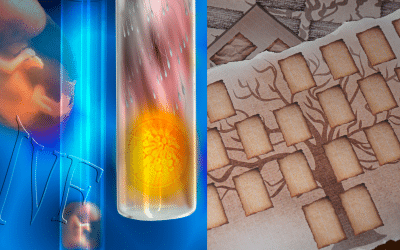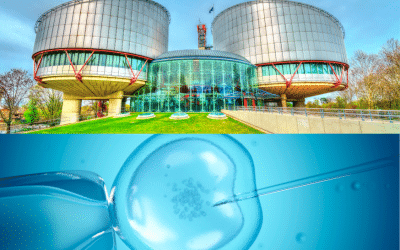Several cases to determine parenthood for surrogate children are being examined at the French Court of Cassation since last Tuesday, May 30th.
In July 2015 France was convicted by the European Court for Human Rights in the Mennesson Labassée case. The French government did not appeal the decision, unlike other countries did in similar cases, but the French Court of Cassation allowed birth certificate registration on the French civil register as long as the names of the biological father and the surrogate mother for these infants born outside French borders had been recorded on the foreign registries.
These cases involve claims to acknowledge a legal parentage status for the member of the couple who has no biological relationship whatsoever with the child.
One of the cases involves a couple’s request to have the birth certificates of twin girls born by surrogacy in the Ukraine in 2011, registered in France. However the surrogate mother’s name is not recorded on the Ukrainian birth certificate, only the names of the couple who “ordered” the child. The couple’s lawyer, Françoise Thouin-Palat argues “It is unacceptable to treat differently the intended father and the intended mother”. This argument is particularly unfair and brutal since it completely leaves out the woman who gave birth to the twins and only considers the alleged interest of the “ordering” couple.
Another case concerns a 10-year old boy born through surrogacy in California. In the American birth certificate two names are recorded: the surrogate mother’s name and the name of one the men of the gay couple, who is also the biological father. This birth certificate was transcribed to the French civil register. In 2004, the gay couple signed a “Civil Solidarity Pact (PACS)”; and they were later married in 2013, but the adoption request submitted by the other man of the couple was rejected both at the original trial and on appeal. The Chief General Counsel, Philippe Ingall-Montagnier, declared this adoption to be « for the best overall interest of the child”. But how can a child’s interest be respected when his right to his unique maternal bond is relegated to a man?
The decision from the First Civil Chamber of the Court of Cassation is expected by July 5th.
Caroline ROUX, Alliance VITA’s Assistant Deputy General, and member of the international group No Maternity Traffic*:
“If the French law is against surrogacy it is first and foremost for the protection of women and children’s rights. These cases show an upsurge in adults’ personal claims with absolutely no consideration for the child’s interest. Those couples pretend that society is unfair to them and to their children, whereas they are the ones who deliberately disrupt the parental relationship by ordering a child in a surrogacy contract. This is a genuine child abuse. The truth about surrogacy is that these children are the victims in a traffic where maternity is fragmented between ovocyte donors and surrogate mothers, where abandonment at birth is planned, and where children are turned into a commodity.
If the Court of Cassation approves parentage recognition for these children, thereby turning a blind eye to illegal fraud, there will be serious side-effects on the role of justice in French law. It is essential for the French President and his government to urgently adopt a firm and uncompromising policy for an effective ban on all forms of surrogacy.”
MAR : Access to Origins, What is the Reality ?
Although the 2nd August 2021 bioethics law partly authorised access to their origins for children born by Medically...



